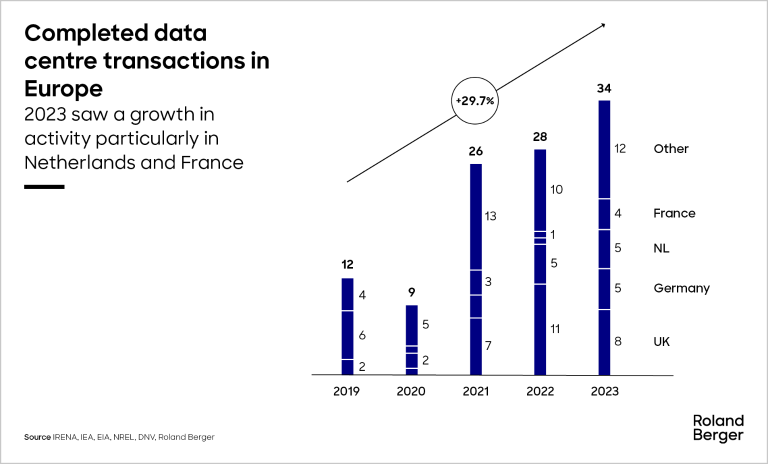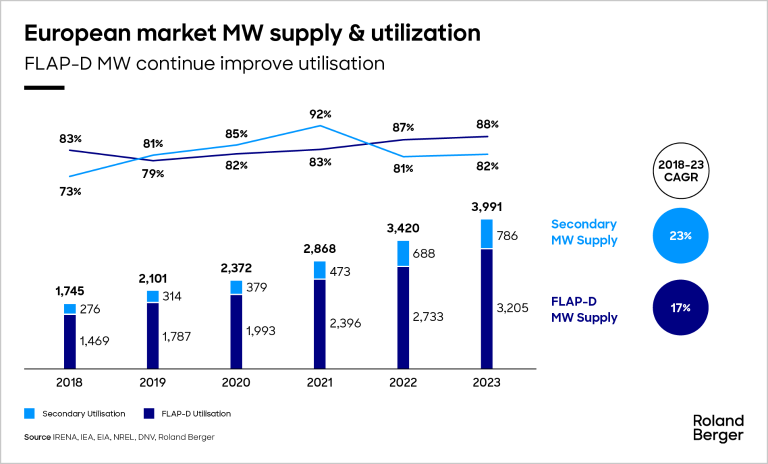Generative AI (Gen-AI) is set to transform all industries, and that is not a superlative statement. Many may have predicted the Metaverse or Web 3.0 to lead the digital transformation, but it will be Gen-AI, simply because the use cases are more obvious, and impactful.
State of the European data centre market
![{[downloads[language].preview]}](https://www.rolandberger.com/publications/publication_image/roland_berger_web_25_1005_default_cover_03_download_preview.jpg)
Analyzing drivers of growth and future challenges facing the EMEA data centre market











